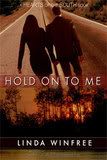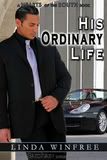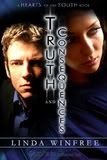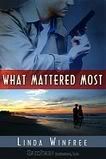Characters, Once Again
Picture a classroom, decorated in lots of red, white and blue befitting an American Lit class, full of inquisitive, talkative teenagers hyped up on Halloween candy. For once, they've all done the required reading (Scary -- that might be the first sign of the Apocalypse). We're thirty chapters into Kate Chopin's The Awakening, and they're excited about the developing story.
The conversation veers into making connections between this novel and Fitzgerald's The Great Gatsby, which they finished earlier in October.
"Oh! So Edna and Robert are kinda like Gatsby and Daisy!" Brittany says. "They're in love, but they can't be together because both Daisy and Edna are already married."
Sara brightens as she leans forward, eager to talk. "Yeah, and both of them are unhappy in their marriages."
Colby looks up and I know I'm in trouble. I love this kid -- he's smart and funny and likes to participate -- but when he gets that little frown between his brows . . . oh, man.
"Ms. Winfree, what's up with all these books with adultery in them?"
See? Told you I was in trouble. All twenty-two pairs of eyes swing to me. At this point, they are convinced every novel in four hundred years of American writing revolves around some adulterous situation. They're wrong, of course, but somehow I inadvertently picked an entire semester's worth of major works that do involve some aspect of that particular issue.
What I point out to my students is that in all of the works in this series (The Great Gatsby, The Awakening, The Scarlet Letter, The Crucible), adultery is not the central conflict or event. In all of them, it serves as a tool for the author to build a character, to create or enhance a main conflict, to explore a theme. Fitzgerald uses Nick Carraway's rather unreliable point of view to gloss over Gatsby and Daisy's illicit liasons. Chopin's exploration of Edna's sexual and individual awakening has the character's destruction hinging on her emotional affair rather than her physical affair. Hawthorne and Miller both have their characters suffering consequences of their actions, but with different outcomes: Hester must own up to her affair and Hawthorne uses the Puritan's treatment of her to indict their own hypocrisy; Miller's John Proctor keeps his adultery quiet too long and loses everything because of it.
So . . . four authors, one taboo, four great reads.
Four books in which the reader is induced to basically overlook the adultery for the other major ideas. I don’t have a problem with Gatsby and Daisy having an affair. I understand why Edna makes the choices she does. I get John Proctor’s straying. Same for Hester Prynne.
But.
In my office is another book, the second by an author whose first book I adored. I've had this book over a year. I can’t finish it. Can’t get past chapter four or five. Because the protagonist is about to embark on an adulterous relationship and I can’t stand it. I think she’s stupid and ungrateful. I can’t read this book.
Different author. Same taboo. A really cruddy read, for me anyway.
Why? Again, it’s the character. If she were different, maybe it would work. But because her motivations seem weak, her character comes off as weak.
As Bonnie pointed out to us earlier this week, it’s all about the characters.
The conversation veers into making connections between this novel and Fitzgerald's The Great Gatsby, which they finished earlier in October.
"Oh! So Edna and Robert are kinda like Gatsby and Daisy!" Brittany says. "They're in love, but they can't be together because both Daisy and Edna are already married."
Sara brightens as she leans forward, eager to talk. "Yeah, and both of them are unhappy in their marriages."
Colby looks up and I know I'm in trouble. I love this kid -- he's smart and funny and likes to participate -- but when he gets that little frown between his brows . . . oh, man.
"Ms. Winfree, what's up with all these books with adultery in them?"
See? Told you I was in trouble. All twenty-two pairs of eyes swing to me. At this point, they are convinced every novel in four hundred years of American writing revolves around some adulterous situation. They're wrong, of course, but somehow I inadvertently picked an entire semester's worth of major works that do involve some aspect of that particular issue.
What I point out to my students is that in all of the works in this series (The Great Gatsby, The Awakening, The Scarlet Letter, The Crucible), adultery is not the central conflict or event. In all of them, it serves as a tool for the author to build a character, to create or enhance a main conflict, to explore a theme. Fitzgerald uses Nick Carraway's rather unreliable point of view to gloss over Gatsby and Daisy's illicit liasons. Chopin's exploration of Edna's sexual and individual awakening has the character's destruction hinging on her emotional affair rather than her physical affair. Hawthorne and Miller both have their characters suffering consequences of their actions, but with different outcomes: Hester must own up to her affair and Hawthorne uses the Puritan's treatment of her to indict their own hypocrisy; Miller's John Proctor keeps his adultery quiet too long and loses everything because of it.
So . . . four authors, one taboo, four great reads.
Four books in which the reader is induced to basically overlook the adultery for the other major ideas. I don’t have a problem with Gatsby and Daisy having an affair. I understand why Edna makes the choices she does. I get John Proctor’s straying. Same for Hester Prynne.
But.
In my office is another book, the second by an author whose first book I adored. I've had this book over a year. I can’t finish it. Can’t get past chapter four or five. Because the protagonist is about to embark on an adulterous relationship and I can’t stand it. I think she’s stupid and ungrateful. I can’t read this book.
Different author. Same taboo. A really cruddy read, for me anyway.
Why? Again, it’s the character. If she were different, maybe it would work. But because her motivations seem weak, her character comes off as weak.
As Bonnie pointed out to us earlier this week, it’s all about the characters.
Labels: Linda's Posts







3Comments:
On this point, I'm going to have to disagree. Characters can carry a book to a certain piont, but if the subject matter isn't something you're open to reading, even the greatest characters are going to fall flat. Adultery is a hot-button topic for me, probably because I grew up in a house where this happened. I've seen what it can do, and I'm here to tell you it's not romantic at all. While I understand the distinction between adultery in the 1800's vs today, and the way women were treated as property back then, it's still not something I'm wild about reading. In a book set in modern times, no great love story in my book can start when one or both characters are married.
People rave about The Bridges of Madison County, and I even read the book after a girlfriend went on and on about how romantic it was. Personally, I just couldn't get past the fact the heroine was married. It wasn't romantic to me at all.
Lin, have any parents pointed out you're highlighting books focused on adultery? You live in a small southern town. I'm surprised if it hasn't come up.
And in the books we're reading, it's not romanticized or shown as the "right" thing -- it's merely not the main conflict. In Gatsby, the main conflict is his pursuit of a long-time hopeless dream and what happens when that dream shatters. In The Scarlet Letter, the main conflict centers on the Puritans' refusal to see that their sin of judgment and hypocrisy is equal to Hester's sin. In The Awakening, the adultery again is secondary to the main character's struggled against a repressive society. And with The Crucible, Proctor's affair leads to his guilt and thereby his later redemption (although he is redeemed only through his death). All of the characters face a consequence for the original affair -- ALL of them.
The fifth book (Okay, it's the Mermaid Chair by Sue Monk Kidd) does not seem to show a real consequence for the character who indulges in an adulterous affair (with a MONK!). Yes, her husband finds out (although I can't make myself read through, I did look ahead), but eventually it appears he takes her back. And somehow, the adultery is used as a tool for personal growth. I think not. She still comes off as a whiny, spoiled woman who does not appreciate ultimately what she has.
So maybe I should have focused on conflict rather than character, LOL?
I have not had parental flack for my choices in regards to these books (again, it was not a conscious choice -- I chose books based on authors and literary value within the standard curriculum -- wasn't until later that I realized there was a recurrent element). I think this is true for a couple of reason. One, my parents always know up front what we're reading and that if content is an issue, an alternate selection can be provided for individual children. Two, again, the adultery is NOT romanticized in these books and although we do talk about it, it's not a major component of what we discuss in regards with the book (instead, it's the American dream, the struggle for identity, an individual vs. society, etc.). No, the big fuss this year centered on a different classroom and the use of a book by Dawkins, the avowed atheist who claims he can turn even the most devout Christian against the idea of God.
Yeah. That was fun, in southwest Georgia.
Oooh, and your comment highlights something we discussed during our Socratic Seminar on The Awakening last week: how reader experiences affect perception. The kids got into this HUGE discussion (they bordered on debate and I had to keep reining them back in with the reminder this was a dialogue, not an argument) on whether Edna's character is weak or strong becasue of her suicide at the end of the book.
You had people who said, "She's weak because she has options. She doesn't have to kill herself." then there was the "But she's making a choice not to sacrifice her spirit for her children -- that's strong. There's strength in believing something so stronly you'd rather die than forsake that new-found freedom." It made for interesting discussion, with kids bringing in their own realities (having known families left behind after suicides, or being that person left behind). They came away with the idea that a book is different for each reader (which finally let them understand what I mean when I tell them if they go back and read a book as an adult, it will be different), and this is because of the reader's own life experiences, which cannot be discounted.
The most poignant moment of the week was having one of my students remain after everyone had trooped out, still "discussion." Okay, they were arguing. But good-naturedly.
So B is sitting on top of a desk and he looks at me with tears in his eyes and says, basically, "Ms. Winfree, they just don't get it. They don't get what it's like to have someone say, 'this is your life and there's nothing you can do about it', and until they live how that can push someone to the idea of suicide, they can't get it."
And I'm just looking at him, this smart, athletic precious kid who knows that because of a fatal genetic disease, he and his brother probably won't live past their twenties. All I can say is, "You're right. They can't get it." And talk to him. Give him a hug (yes, we do that--we're a different school, and I'm thankful for that).
Because I can't get it either. I haven't been there. But he has.
Weird how I had to take back those words I'd said earlier in our discussion, about how the boys might never get how trapped Edna feels. Because B obviously got something I didn't -- there's more than one way to feel trapped by a pre-destined life.
Post a Comment
<< Home